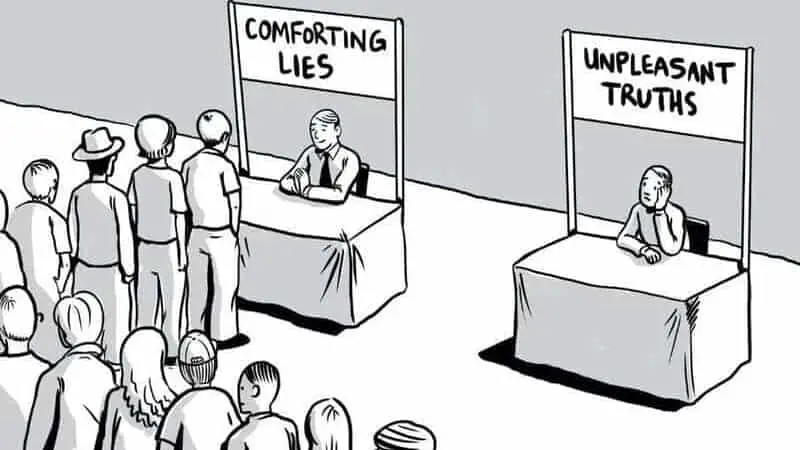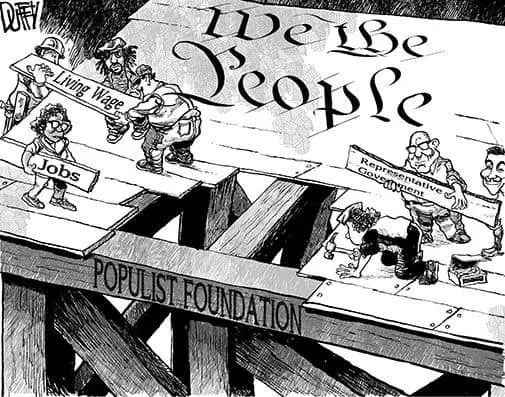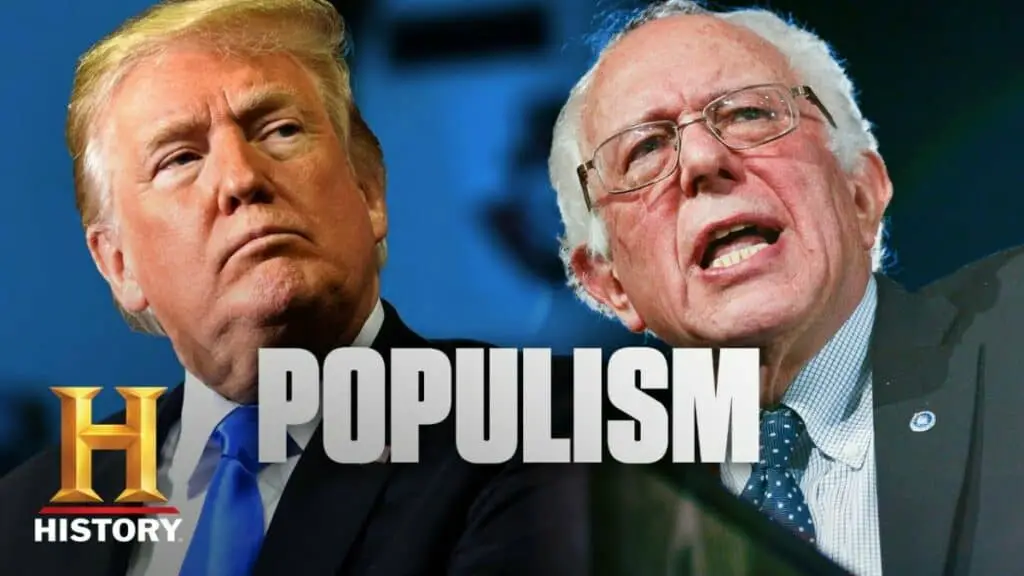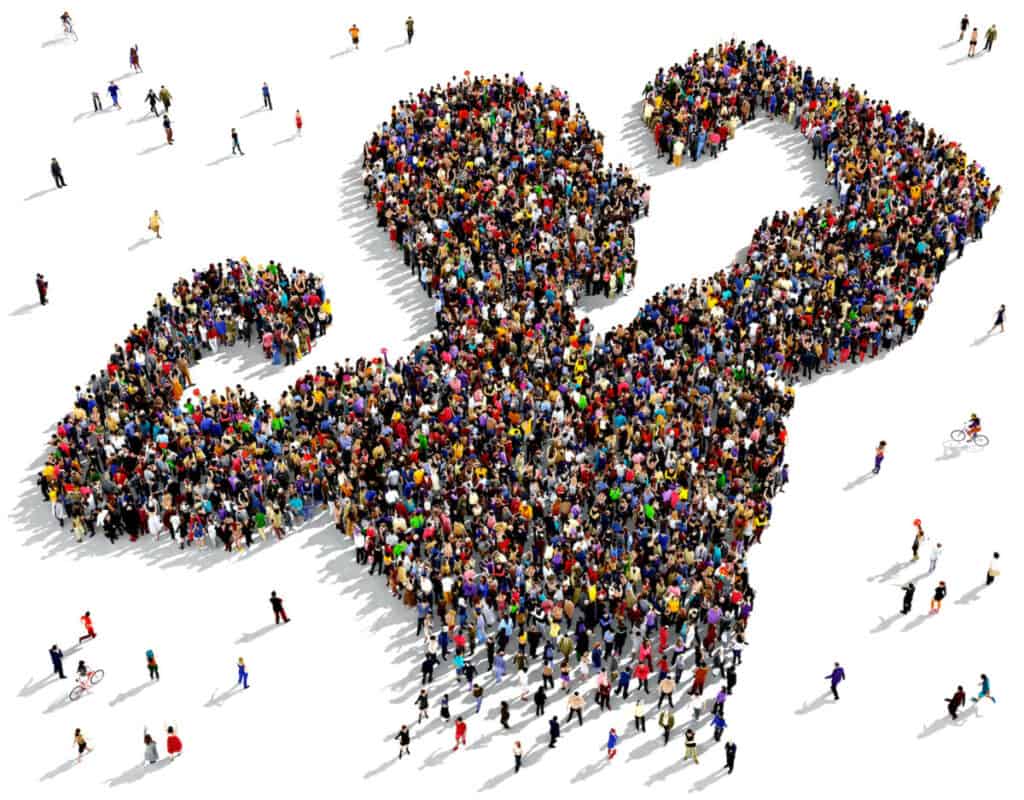Is Donald Trump a populist?
Is Joe Biden a populist?
Populism is one of those “over-generalized” political terms ending in “ism” like communism, socialism, and capitalism.
But what exactly is populism, what does populism mean, and why is the term ‘‘populism’’ becoming so popular?
When I think of a populist, I picture a stereotypical 1920’s fat politician, bursting out of his suit, with a top-hat, smoking a cigar, and with money falling out of his pocket.
As it turns out, I’m not too far off…The Populist party first came to power in the United States in the late 1800’s with the political strengthening of the Farmers Alliance and Labor Unions.
However, populism has been around since the spawn of politics and civilization dating as far back as ancient Greece and ancient Rome.
Today, populism is a tweet that gets amplified on the internet causing millions of people to mistake an angry opinion, for radical truth.
In the article we’ll explore the history, origin, science, and expert opinions to find the meaning of populism. And whether or not it’s a good thing… , or a bad thing ?
Let’s Dive In
What Does The Term “”Populism”” Mean (the political science)
Origin of Populism:
To best understand what populism is and what it means, we need to understand where populism started.

The real origin of populism is democracy. Populism is a tool used by political leaders in a democracy to gain popular support. The term populism can be traced back to the Latin word “populus”, meaning “the people”.
Populism itself is a result of trying to influence people that live in a democracy. It only makes sense that the origin of populism is can be rooted back to the first examples of democracy in ancient Greece and Rome.
According to military historian and consultant, best-selling author, and professor of History Barry Stuart Strauss, the widening wealth gap in ancient Rome gave rise to the “populares,”. These were Roman politicians who claimed to fight on behalf the people…, although history revealed that they were actually just manipulating “the people” for their own selfish means.
Professor Strauss also points to Athens Greece in 500 BC as an early example of populism. During the bloody war with Sparta, Greek leaders influenced the masses using prejudice to gain support rather than reason.
“Athenian democratic politicians raced to the bottom in order to outbid each other in the pursuit of popular favor, offering ever greater benefits…, and pursuing ever less dignified rhetorical stagecraft,” Barry Strauss.
Who Are The Populists?
Republicans, Democrats, Capitalists, Socialists who are the populists? Populism transcends political ideology, meaning anyone can be a populist regardless of where you are on the political spectrum.

Populism’s not all bad. Both left and right populists often have good points, but it’s the full perspective you get from looking at both perspectives that gives the deepest understanding of truth.
Right-Wing Populism Vs. Left-Wing Populism
Right-Wing Populism (republicans, conservatives, capitalists) –
I’m looking at you Donald Trump, modern day GOP, and former Brazilian President Jair Bolsonaro.
Right wing populism today focuses on Nationalism (anti-globalism), anti-establishment, and anti-elitist. Right wing populists today claim to speak in favor of the people and speak out against perceived attacks from “outsiders”

Left-Wing Populism (democrats, liberals, democratic socialists) –
I’m looking at you Bernie Sanders and Alexandria Ocasio Cortez.
Left wing populism today focuses on anti-elitism (billionaires / corporations), economic fairness, and social justice. Left wing populists today also claim to speak for the people promoting anti-militarization and supporting minority rights.
The Essential Features of Populism:
Much like a doctor diagnosing an illness by identifying the symptoms…, Populism can also be recognized by identifying the tell-tail signs.
The Trouble With Defining Populism
Populism is not always easy to identify.
Author and Australian political science professor Dr. Benjamin Moffitt believes populism is better understood as a style of politics, not a political system itself.
Dr. Moffitt says that Populism is a manner of doing politics where you (or declare) a crisis and pick a group of people to blame. Often offering no real solution.
There are many variants of populism, most notably on both the left and the right.
How Can You Spot A Populist?
Charismatic Political Leader
Throughout history populist leaders have been over the top charismatic (salesman vibes).
As noted by political scientist Dr. Takis S. Pappas, who earned his Ph.D., Yale University…,
“with no significant exception, all successful populist leaders in modern and contemporary times have exercised charismatic leadership.”
Claiming To Identify With The Will of The People
According to political science expert Dr. André Munro an author for the esteemed Britanica Encyclopedia, populist leaders claim to embody the “will of the people” as a strategy to consolidate their own power.
Telling the people what they want to hear (not what’s true) and leveraging fear, populist leaders can gain major popularity, money, and power all without any real solutions to any of the problems actually facing “the people”.
Insiders Vs. Outsiders (us vs. them) and Tribalism
Populist leaders gain power through sewing division.
They use tribalism to create an “us vs. them” mentality at many different levels, between political parties, between nations, between classes, and between cultures.

By exaggerating insiders vs. outsiders it gives the populist leader an enemy to blame, and a unifying point of focus for their base to collectively fear, hate, and get angry at.
“The People” (us)
“Nationalists” (us)
“The Elite” (them)
“Outsiders” (them)
The Other Political Party (them)
One truth about humanity is our tendency to create an “us vs. them” mentality.
- Sports Team vs. Sports Team
- Country vs. Country
- Political Party vs. Political Party
Unfortunately, populism leverages groupthink which enables the marginalizing of individuals who disagree with the dominant interests. This causes people who doubt or question ideas to hide their fears and remain quiet, assuming that what’s popular must be the absolute truth.
But, by marginalizing “them” and denying different ideas and thoughts, we lose sight of what’s really true and replace it with what’s popular.
Is Populism Good Or Bad?
Asking if populism is good or bad is like asking if guns are good or bad. They can kill, they can provide food, and they can protect. It all depends how you use it.
The Good
Identifying with the will of the people is in-itself, a good thing. This is what good politicians should be doing constantly.

Our ‘Representative Democracy’ is supposed to work by leveraging the “collective will of the people” to elect local, state, and federal politicians who represent their beliefs and values.
The Bad
What’s popular isn’t always true.
When “the people” are mad, upset, fearful, or angry it’s easy to ‘fan the flames’ to gain popularity by blaming others. No real solutions are needed by leaders and while standing up to quell unrest, or pitch, unpopular but necessary, solutions may be what’s best for “the people”, it might not work well for a fast political gain.
The Ugly
The move towards populism can incentivize leaders to knowingly feed “popular lies”, fake news, and conspiracy theories to their base as a strategy to maintain power, ‘champion status’, and popularity amongst the people.
Why Is Populism A Threat To Democracy?
Democracy works by moving forward using thoughtful disagreement and mutual respect for the principles democracy above all else.

It is the believe of Larry Diamond , Senior Fellow at the Hoover Institution, Stanford University, and founder of the Journal of Democracy, that populism erodes the pillars of the foundational democratic principles.
For example, by demonize the opposition as “illegitimate” , “unpatriotic”, or as “part of the establishment” populists can make their opponents look out of touch with the “true people.”
Mr. Diamond also points out that populism undermines the independence of the courts and independence of the media, by appointing and denouncing them along partisan lines.
Final Thoughts: Populism. Truth vs. Popularity
Although theoretically populism can be used for the ‘’greater good’’ and benefit of most people, typically populism is not referenced as a positive attribute.
In a world where popular opinion is all that matters, what’s “true” has started to become less important than “what’s popular”, especially in politics.
Sometimes the truth is not an easy pill to swallow, but swallow it we must. However when politicians manipulate public opinion in order to stay popular, it undermines the foundational principles of democracy.
Loved what you read?
Hit that share button and let the world in on the secret – we’d be thrilled!
Got thoughts? We’re all ears for your feedback, corrections, or a good old chat. Don’t be shy; drop us a line.
And hey, don’t miss out on our curated list of must-reads in the recommended books section.
Big thanks for diving in with us today!




